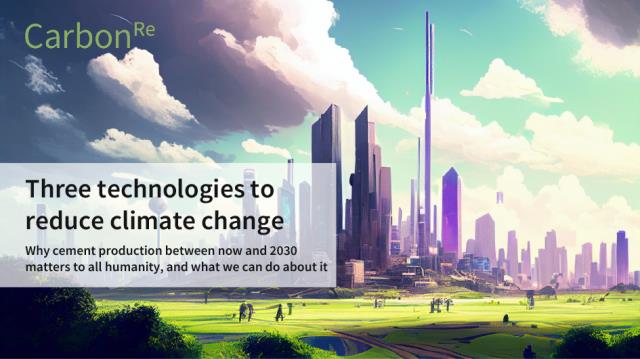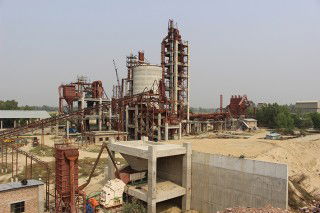New research by Carbon Re has found that the cement industry could deploy a combination of 13 existing technologies to reduce CO2 emissions by 0.8Gt per year. What’s more, the combination of just three technologies can deliver 81 per cent of this impact, according to the Carbon Re report “Three technologies to reduce climate change”. These are: Substitute Cementitious Materials (SCM), biomass and waste alternative fuels and the use of Artificial Intelligence (AI) to improve processes.
The white paper also calls for policymakers to remove barriers to the decarbonisation of cement resulting from adverse effects of current regulations and policies, including by overhauling the European Union's Emissions Trading Scheme (EU ETS), which currently incentivises clinker production.
Carbon Re assessed 20 technologies related to the decarbonisation of cement production and modelled 13 with the greatest potential to make an impact in the next decade. Clinker-reducing cement substitutes, along with new LC3 cement blends, were found to be likely to have the greatest impact. The report says biomass has potential in the short term. However, its impact on the climate may be limited (or even negative) depending on the source and wider impact of using these alternative fuels. AI was considered to have the potential for significant impact in a short timescale, as it can be used with existing and new processes and materials and can deliver significant cost savings.
The white paper highlights the fact that not all the technologies can be used together, as some will reduce the impact and/or effectiveness of others. It also says capital investment costs will hold back many of the technologies, such as kiln electrification, carbon capture and calcium looping.
Looking beyond 2030, the report highlights carbon capture via oxyfuel, and graphene as two technologies with longer-term potential. It rejects green hydrogen as a viable solution for cement production because of the capital investment required in renewable electricity generation and hydrogen production by electrolysis, as well as the high demand for green hydrogen from other industries such as steel production.
Carbon Re claims that its Delta Zero industrial decarbonisation platform has the potential to cut fuel use by 10 per cent and fuel-derived CO2 emissions by 20 per cent, equivalent to more than 50,000tpa of CO2 emissions per cement kiln. It uses AI technology to model a cement plant’s production environment and optimise processes for the lowest possible CO2 output and fuel use, with no capital expenditure.
Decarbonisation partnership
Meanwhile, Carbon Re and cement manufacturing consulting firm, A3&Co®️ have joined forces to help manufacturers cut costs and accelerate cement decarbonisation. The two organisations have signed a strategic partnership agreement and plan to work together to help cement manufacturers optimise production processes to reduce operational costs and carbon emissions to otherwise unachievable levels.

Carbon Re’s latest whitepaper advances three technologies to reduce climate change.
